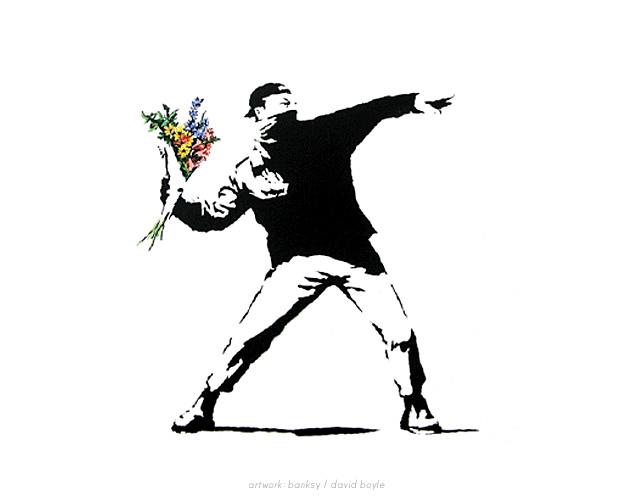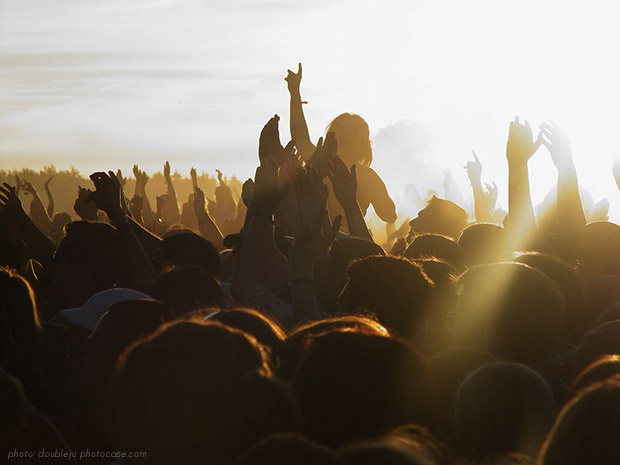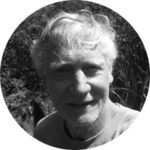A Guide to Conscious Social Activism: Navigating The Future
BY ANDREW BEATH
Our planet is alive. Air, water, fire, and geologic systems are the life-giving constituents that compose the Earth- Time and unfathomable mystery interlace these elements into harmonious relationships. The millions of life forms that surround us evolved together over hundreds of millions of years.
A new planetary danger has arisen. We are facing a critical epoch of our existence. The way we humans interact with the living Earth has set the stage for an extinction spasm affecting a significant proportion of all life, including our own species. But just as near-death experiences can result in the expansion of normal awareness, so too can this degradation that puts us at risk precipitate the emergence of a new relationship between humans and the natural world. The crisis we have created has become the impetus for the next step in the evolution of human consciousness.Why is a focus on expanding consciousness important for effective social change? How can we integrate the new understandings we discover in order to create a healthier society? These questions provide the context for us to examine personal and social transformation.
Based on my own consciousness research, I have identified seven attributes that characterize “conscious activism.” They shine across centuries and cultural boundaries. Each one provides guidance to dissolve our isolation, demystify paralyzing concerns, and shows how individuals can make positive changes in the world. They are skills for metamorphosis that can help to heal the world.
Seven Attributes of Conscious Activism
Nonviolence: Kindness in the Midst of Passion
As the Dalai Lama has said, “Nonviolence takes a very long time.” Nonviolence is a lifelong process of refining the arts of kindness, concern, and tolerance for differences. It need not be the absence or suppression of anger or other emotions. It is a behavioral choice we make. There are a number of effective techniques that allow violent feelings to pass through like a temporary storm rather than dictate our actions. It requires an agreement with oneself to act toward others with appreciation of our shared sacred nature.
Acts of intentional violence are founded in pain, disconnecting us from life’s creative source. Just feeling violent is painful. And every violent act, even if it is necessary to protect family or defend against further violence, creates more suffering. It’s impossible to live without harming other living beings, so the parameters of nonviolence are difficult. Nature is filled with violent upheavals. No matter how committed, no one can live without doing any harm. This is a complex challenge whose solution stems from a desire for mutual wellbeing.
Not Knowing Allows Spontaneity in the Moment
Not knowing enables us to put aside our entrenched ideas and reactive behaviors. Intellect and intuition become more balanced. It is a place of open mind and heart accompanied by wonderment, where spirit is readily available.
The ongoing drama of yesterday’s problems and tomorrow’s plans can take up all of one’s interior focus. Alternately, presence is an empty vessel that provides spaciousness for infinite intelligence. It is found in a transition zone between the fullness of opinions and the emptiness of no thought. When a field of noisy voices becomes quiet, there is room for bird songs, wind, and the rustle of forest leaves—sounds of silence that were present but unnoticed a minute before. There is a place for both memory and imagination. But to always think about what is not present dishonors the moment.
Introspection for Self-Discovery
We each have a personal identity but often fool ourselves into thinking this is all we are. The ego is a harsh taskmaster who often has us on remote control, unconcerned with life’s grand perspective. The inner self can lead us out of the prison of separation. As we come to understand our motives, we gain choice and are not obligated to operate from our prior automatic response patterns.
Eros, the Art of Loving Kindness
On a planetary level, Eros is the cosmic attractor that acts as an omnipresent connector of all things, large and small. On a personal level, it is the archetypal energy of loving connection that is inherent in all beings and represents loving kindness through interrelationship and appreciation.
Through self-inquiry we discover an expanded personal imagination and boundless transpersonal experiences. Personal transformation is the first step in social change. Introspection is our most valuable tool for this process.
Our intuition and all our senses come alive in the wild, where we are educated by nature’s sensuous intelligence. Likewise, there are techniques to roam the wilderness of our interior self and extend its borders. Both in nature and in one’s inner world, looking carefully reveals interwoven threads in a grand tapestry of life.
Love and beauty are not ethereal qualities. They are essential presences that can resolve the problems we have created. This is inner grace.
When asked on his deathbed for his advice about life, Aldous Huxley, England’s preeminent scholar and wise elder, simply said, “Just try to be a little kinder.” Anger smothers Eros. Without compassion the flames of anger are consuming. Often they provide much-needed instant energy, but in the long run they deplete us.
Conscious activism is activism from the heart. It is composed of loving kindness and requires nothing in return. If we love something, we want to help it thrive: redwood trees, rivers, and everyone’s children. As our capacity for love appreciates, our world grows larger. As our connection with the living planet deepens, so does the place in our hearts from which we experience joy.
No Enemy, Co-Creating a Healthier World
I may disagree with someone’s actions or be disgusted by them, but it is not helpful to detest the person. I clearly remember when, through ignorance, I was disrespectful to life’s beauty. So it’s not necessary or helpful to my cause when I create an enemy out of someone with whom I disagree. We humans are one family and have all participated in creating our current circumstance. Just putting aside fear and hatred is revolutionary behavior that can change the world. Thich Nhat Hanh says, “You don’t need the other side to make peace. You can make peace by yourself.” Actions are more effective when they stem from compassion than from resentment.
Vision, Free of Reaction
It is necessary to confront social injustice and ecological degradation with opposition—yet other approaches are also needed. Let’s stop the destruction, and just as important, let’s envision the actions needed for a healthier future. Activism without this vision could more accurately be called reactivism. To continually struggle against enemies traps us in their drama. Opposition often adds more juice to the entrenched system I am attempting to improve. To use the strategies of those I hope to change puts me in danger of becoming what I loathe.
Holding the vision for a successful future reduces the likelihood of getting caught up in today’s dysfunction. Providing healing alternatives will attract others and cause the old system to atrophy. Change born of compassion is more likely to endure than that of opposition.
Being Joyful Without Attachment to Goals
Joy is inherent in the intricate beauty of nature. As I get older, my appreciation grows. I celebrate Earth’s sanctity. Vulnerability, joy, and grief are not separate. Each is a part of heightened sensibilities, deep feelings, and concern for others. When I stay grounded in gratitude, I stay open hearted, even in the face of ongoing planetary problems. But a need to save the world or attachment to other unattainable goals can lead to despair.
It brings pleasure to live in respect. Like “reinspect,” it is to pay attention by seeing deeply. This enhances relationships and loving connection. And we usually want to help the things we love. The state of the world is a mirror of our cultural values. The community of people who value a healthier culture is growing. Society’s compassionate heart is feeling more deeply and gaining greater visibility. Joy abounds in this numinous life dance.
As a species we are entranced in an anthropocentric delusion of supremacy that has, until recently, been unwilling to acknowledge the damage we foment. However, the results of our actions are leading us to deeper awareness, and this process is the leading edge of the evolution of human consciousness. There is perfection in the unfolding universe that is grander than any individual act of destruction. Perhaps it was an evolutionary necessity for us to endure extreme social discord and planetary degradation in order to reconnect with natural harmony and thereby learn how to move forward with wisdom.
Conscious activism engages the world by expressing our most profound understanding of natural harmony. This form of activism endeavors to open the compassionate heart of each person, on all sides of an issue. This can only happen if we expand our own awareness—individual transformation is essential for global change. By healing ourselves we bring health to the whole.
This article on conscious social activism is excerpted with permission from Consciousness in Action: The Power of Beauty, Love, and Courage in a Violent Time by Andrew Beath.
About the Author
Andrew Beath is the founder of the EarthWays Foundation and several non-profit, social justice and environmental organizations. He is also the author of multiple books. Learn more about them at: earthways.org









